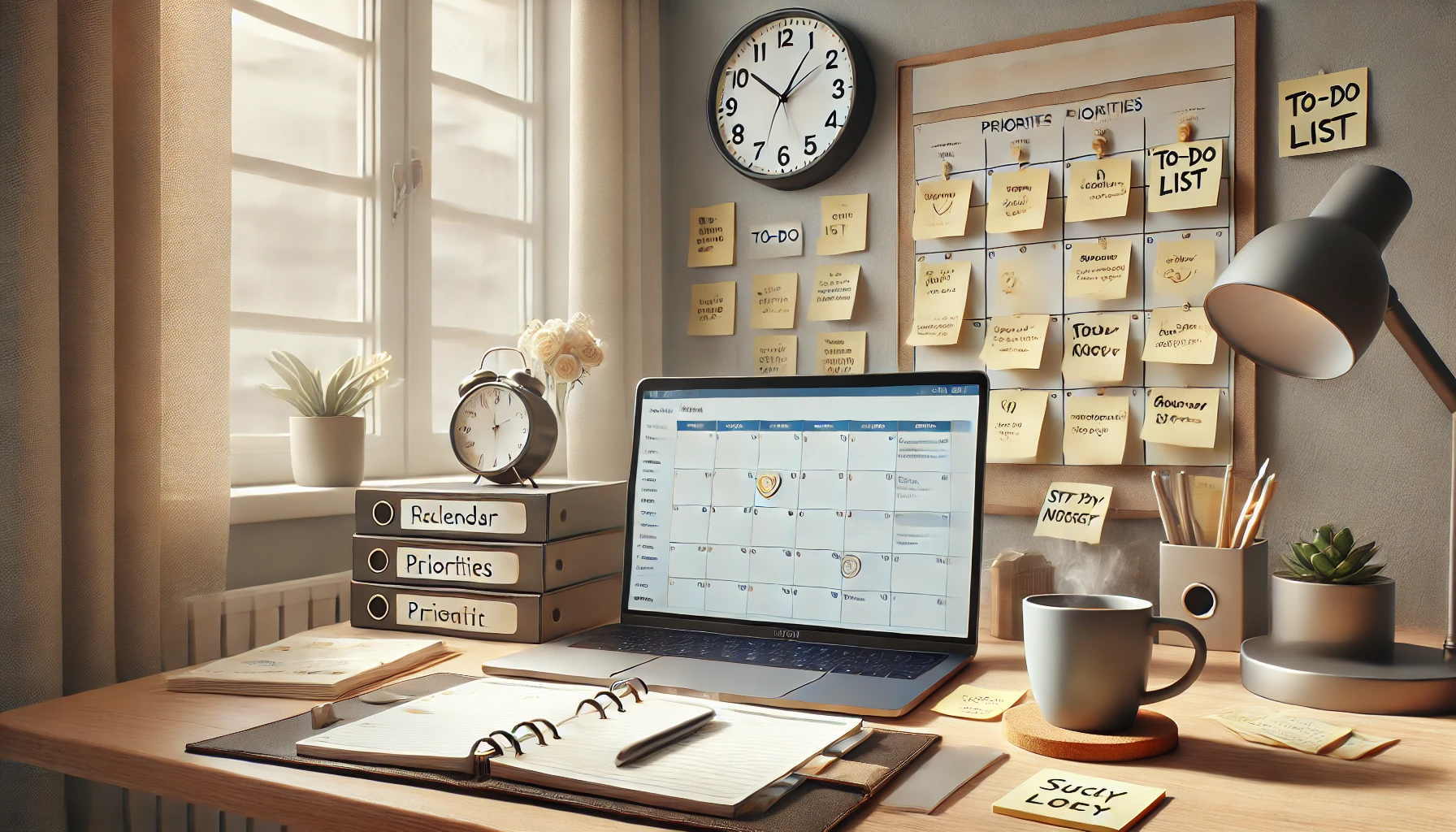When life gets busy, organization is often the first thing to fall apart—and yet it’s exactly what you need most to stay on track.
Whether you’re juggling work, family, studies, or side projects, staying organized isn’t about doing more. It’s about doing the right things in the right way.
In this article, you’ll learn realistic tips to help you keep your schedule, space, and mind organized—even when life feels chaotic.
1. Start With a Weekly Overview
Before your week begins, take 15–20 minutes to:
- Review your calendar
- List your top priorities
- Time block key tasks and meetings
- Identify potential challenges
Seeing everything in one place helps you feel prepared and in control.
🧠 Tip: Do this on Sunday night or Monday morning as a weekly ritual.
2. Use Time Blocking to Protect Your Focus
Busy people get pulled in many directions. Time blocking helps you defend your focus by assigning tasks to specific parts of your day.
Example:
- 9:00–10:30 AM: Deep work (no distractions)
- 12:00–1:00 PM: Admin + lunch
- 3:00–3:30 PM: Quick calls
- 5:00–5:30 PM: Planning next day
Block in breaks too—your brain needs them.
3. Declutter Your To-Do List
Long to-do lists create anxiety. Instead, use a priority system:
- Top 3 Tasks: Must-do today
- Quick Wins: Tasks under 10 minutes
- Nice-to-Have: Non-urgent but helpful
This method helps you focus on progress, not just busyness.
4. Batch Similar Tasks Together
Multitasking kills productivity. Instead, group similar tasks:
- Answer emails all at once
- Run errands back-to-back
- Schedule all meetings in one afternoon
Task batching reduces mental switching and keeps your energy focused.
5. Organize Your Digital and Physical Spaces
Your environment affects your mental clarity. Take a few minutes each day to:
- Tidy your desk
- Close unused browser tabs
- Archive or delete old files
- Use folders and labels in your inbox
Small habits prevent clutter from snowballing.
6. Set Boundaries Around Your Time
It’s hard to stay organized if your time isn’t protected. That means:
- Saying “no” to non-essential meetings
- Setting working hours (especially when remote)
- Communicating availability clearly
- Turning off notifications during focus time
Remember: every “yes” is also a “no” to something else.
7. Use a Planner or Digital Tool You Actually Like
You don’t need the fanciest system—you need one you’ll use.
Popular tools:
- Google Calendar for scheduling
- Notion or Trello for project management
- Todoist or TickTick for to-do lists
- A paper planner if you’re a tactile thinker
Choose what fits your style and workflow.
8. Build Mini-Routines Into Your Day
Structure creates stability. Try adding short routines like:
- Morning check-in: Review tasks and calendar
- Midday reset: Stretch, drink water, adjust plans
- Evening review: Tidy space, prep for tomorrow
These small anchors keep you grounded during busy days.
9. Don’t Forget Self-Care
Organization isn’t just about productivity—it’s about preserving your energy.
Make time for:
- Movement or exercise
- Nutritious meals
- Hydration
- Social connection
- Moments of stillness
Burnout will wreck your schedule faster than disorganization ever will.
Final Thoughts: Organized ≠ Overloaded
You don’t need to do everything. You just need a system that helps you do what matters without losing your mind.
Start small: one new habit, one clean surface, one intentional decision at a time. Over time, your systems will grow—and so will your sense of calm and control.
Because staying organized isn’t about being perfect. It’s about staying on purpose, even when life is full.

Daniel Carter believes that small daily changes lead to extraordinary results. Through simple and effective strategies, he inspires readers to take control of their routines, overcome procrastination, and unlock their full potential.











